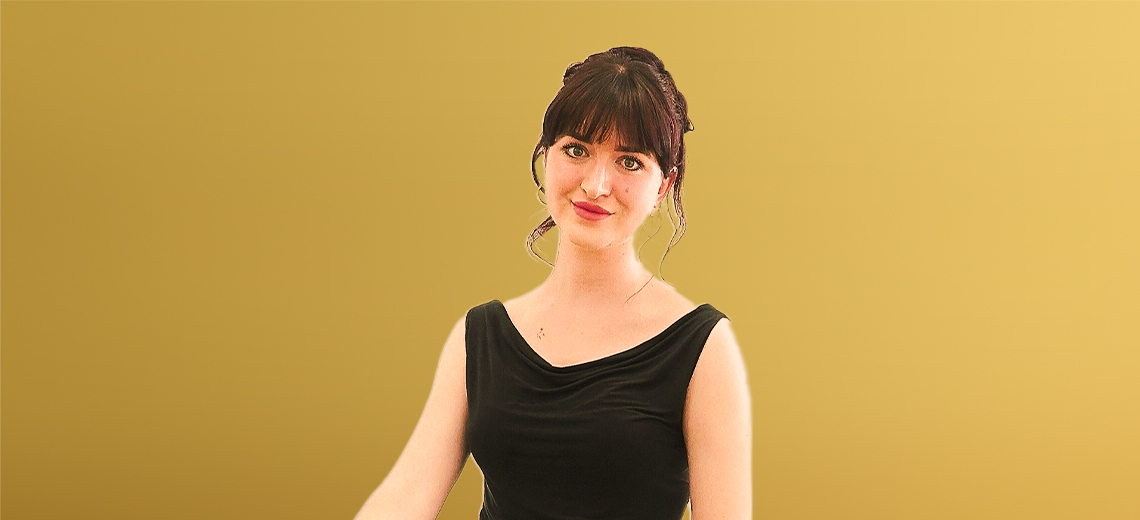This is an episode of the Glossy Beauty Podcast, which features candid conversations about how today’s trends are shaping the future of the beauty and wellness industries. More from the series →
Subscribe: Apple Podcasts • Spotify
Allison Kent-Gunn knows good beauty packaging when she sees it.
The Los Angeles-based aesthetician-turned-packaging consultant has become one of the leading voices in beauty packaging on social media thanks to her “hot takes” on packaging wins and misses. She’s a former cosmetic packaging instructor at the Fashion Institute of Design and Merchandising, and outside of her social media, where she goes by @AllisonTurquoise, her insights can be seen in an upcoming Cosmetic Science Textbook used in packaging courses.
Today’s episode of the Glossy Beauty Podcast — a special episode dedicated to the best, and worst, beauty packaging — concludes our three-part, deep-dive series on the world of beauty and wellness packaging. Kent-Gunn provides an in-depth hall of fame and shame for several packaging categories, including sustainability, accessibility, celebrity brands’ packaging and more.
But first, Lexy Lebsack is joined by Emily Jensen to run down the beauty and wellness news of the week.
First up is a look at the growing wellness data economy, including a look at the value of data collection and aneb analysis of Rebook’s new health tracker ring.
The hosts also discuss fragrance news from Unilever-owned Dove. The mass body-care brand is launching its first-ever body mists as part of a limited-edition holiday collection released with the Rockettes. The iconic New York dancers recently partnered with Sephora, as well.
Next up are details about POV Beauty’s foray into color cosmetics. POV is the buzzy new line from influencer and TikTok star Mikayla Nogueira. The line launched this spring with skin prep products and, in news announced this week, will expand into lip products with a November 4 launch.
On Tilt Beauty, Allison’s hall of fame pick for accessibility
Kent-Gunn: “I really wanted to shine a light on an indie brand that’s also making huge strides when it comes to intentional accessibility in their packaging design, and that is Tilt Beauty. So I chose the mascara personally, because I absolutely adore the formula, but Tilt Beauty does an amazing job of making accessibility a core part of their brand ethos. The founder herself struggles with mobility and dexterity challenges, so this is something that really resonates with the brand on a deep ethos level — it’s not just marketing fluff. So they’ve created amazing packaging, [and] this one is beautiful and fun. It makes you feel good to use it, but it also has increased grip ability, so it’s easier to actually open and then easily apply mascara, which can be quite challenging. It requires a lot of motor skills, so ensuring that you have a full, firm grip, and you’re confident in that grip, is something that can’t be understated. I think they’ve done an amazing job, but they’ve also been able to pair accessibility with sustainability. They’ve actually made their mascara and their lip balm, which are the two products they currently have on the market, refillable. Now, as we’ve mentioned, I’m usually not a huge fan of refills, but I think they did this so strategically, because, oftentimes, the disabled community, especially those that struggle with mobility or dexterity challenges, once they find a product that really works for them, and they can easily use and enjoy the packaging, they are incredibly loyal consumers. So I think they really hit the nail on the head, from an accessibility and sustainability point, and really did an amazing job understanding the needs of the community that they were trying to serve.”
On SKKN by Kim, Allison’s hall of shame pick for accessibility
Kent-Gunn: “I know this line just recently closed its doors, but SKKN by Kim — I think we all remember the moment when they announced that they were going to be having completely refillable components, and they did this beautiful video showcasing essentially a bottle-in-a-bottle. And people, of course, dragged it to filth. It was so tone deaf. And really, I think it was a great example, and really exemplified everything that’s wrong with the current approach to bottle-in-a-bottle refills, where, essentially, it’s just two separate components that you’re making consumers purchase and calling it a more sustainable approach to beauty. I think, unfortunately, this is something we see throughout a lot of beauty lines. I think, considering the amount of resources and funding that brand had, it had to really do something truly innovative and really, you know, kind of push the boundaries of what is considered sustainable. This was incredibly disappointing, although perhaps not surprising.”




